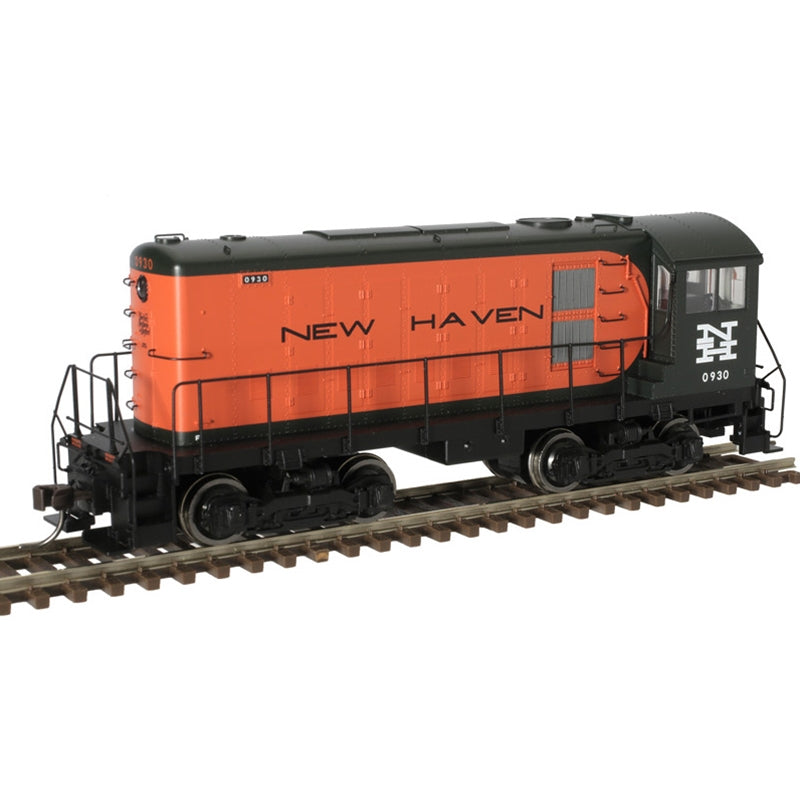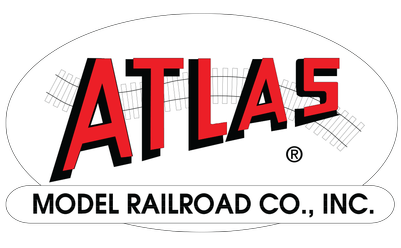Atlas, HO Scale, 10003971, HH600/660 Locomotive, Erie Lackawanna, #303, DCC Ready
Regular price
$179.99
Sale price$114.47
/
- Low stock - 1 item left
Atlas Master Line, Silver Series - DC Standard (DCC Ready)
Between 1931 and 1940 ALCO built 177 high hood (HH) switching locomotives of various horsepower ratings and body styles. The "HH" models were forerunners to the popular S-series of switchers which featured lower hoods. ALCO's high hood switchers were in production long before similar models from competitors EMC/EMD (1935) and Baldwin (1937). Interestingly, the "HH" model designation is a term coined by rail historians to describe what ALCO documentation had simply referred to as 600-hp or 660-hp switchers. In later years ALCO had referred to these early units as "high hood switchers" so this designation is appropriate.
Of the 177 high hood switchers built, 104 were HH600s, 18 were HH660s, 21 were HH900s and 34 were HH1000s. Some of the largest users of these models included New Haven, Lackawanna and New York Central. Various physical changes occurred during the 19 years these locomotives were in production. The biggest change occurred in 1934 when ALCO hired industrial designer Otto Kuhler to improve the appearance of their very boxy, utilitarian switchers. The post-1937 production units we are now offering featured many of his suggested improvements.
In 1938 ALCO introduced a line of high hood switchers powered by the new model 538 diesel engine which featured a cast iron engine block. This engine was offered in both a 660-hp (non-turbocharged 538) and 1000-hp (turbocharged 538-T) switcher, each weighing approximately 196,000 pounds. The horsepower rating could be adjusted downward slightly per customer specification by lowering the RPM of the diesel engine. Therefore, 600-hp and 900-hp models were offered concurrently. The HH600 and HH660 locomotive models we are offering were produced from 1938 to 1940 and were externally identical.
Features:
All new tooling
Early Blunt truck with separate brake cylinders, molded coil spring detail (optional) and metal truck chains
Separately-applied metal grab irons and lift rings
Separately-applied fine scale handrails and stanchions, coupler cut lever and piping
Directional lighting with golden-white LEDs
Five-pole skewed armature motor with dual flywheels for optimum performance at all speeds
NMRA 21-pin plug for DCC
Between 1931 and 1940 ALCO built 177 high hood (HH) switching locomotives of various horsepower ratings and body styles. The "HH" models were forerunners to the popular S-series of switchers which featured lower hoods. ALCO's high hood switchers were in production long before similar models from competitors EMC/EMD (1935) and Baldwin (1937). Interestingly, the "HH" model designation is a term coined by rail historians to describe what ALCO documentation had simply referred to as 600-hp or 660-hp switchers. In later years ALCO had referred to these early units as "high hood switchers" so this designation is appropriate.
Of the 177 high hood switchers built, 104 were HH600s, 18 were HH660s, 21 were HH900s and 34 were HH1000s. Some of the largest users of these models included New Haven, Lackawanna and New York Central. Various physical changes occurred during the 19 years these locomotives were in production. The biggest change occurred in 1934 when ALCO hired industrial designer Otto Kuhler to improve the appearance of their very boxy, utilitarian switchers. The post-1937 production units we are now offering featured many of his suggested improvements.
In 1938 ALCO introduced a line of high hood switchers powered by the new model 538 diesel engine which featured a cast iron engine block. This engine was offered in both a 660-hp (non-turbocharged 538) and 1000-hp (turbocharged 538-T) switcher, each weighing approximately 196,000 pounds. The horsepower rating could be adjusted downward slightly per customer specification by lowering the RPM of the diesel engine. Therefore, 600-hp and 900-hp models were offered concurrently. The HH600 and HH660 locomotive models we are offering were produced from 1938 to 1940 and were externally identical.
Features:
All new tooling
Early Blunt truck with separate brake cylinders, molded coil spring detail (optional) and metal truck chains
Separately-applied metal grab irons and lift rings
Separately-applied fine scale handrails and stanchions, coupler cut lever and piping
Directional lighting with golden-white LEDs
Five-pole skewed armature motor with dual flywheels for optimum performance at all speeds
NMRA 21-pin plug for DCC








